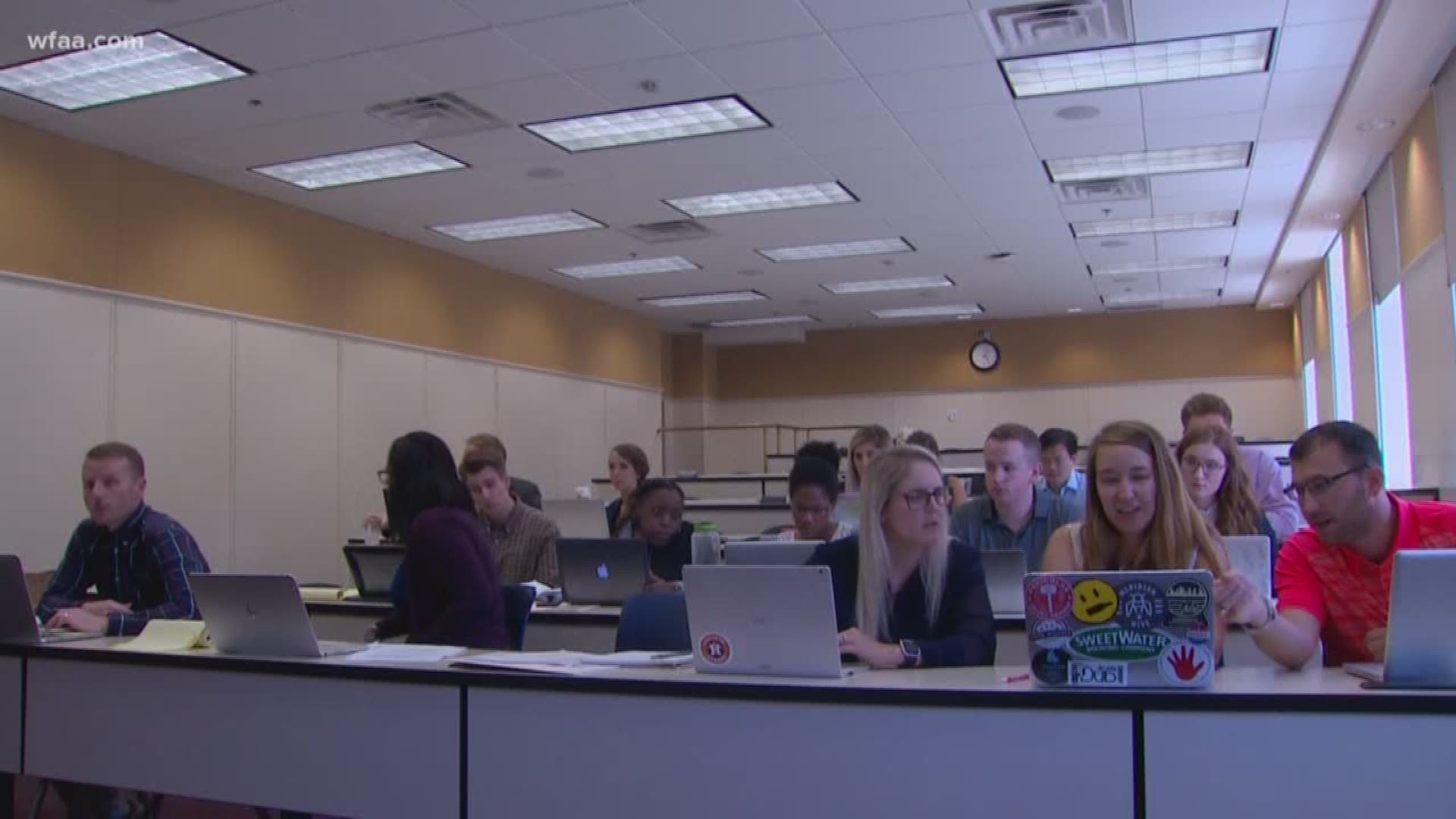DALLAS – A group of law students from Southern Methodist University Dedman School of Law is working to help reduce prison sentences for some non-violent federal drug offenders.
The aspiring attorneys are part of a project called Across the Finish Line. They’re spending the week focusing on helping their clients get some relief from harsh sentences.
When it comes to prison sentences, major debates are happening, right now, about the legal system and criminal justice reform. For some inmates, time serving too much time, is a reality the law student volunteers are working to address. "I think it's hard for a lot of people to realize that these cases aren't just cases,” said third-year student Adrienne Roberts. “They are people."
The students participating in the Across the Finish Line project are working on cases involving low-level, non-violent, federal drug offenders. Organizers say the goal is getting life sentences reduced. "It's fathers, mothers, sisters, brothers. Things that I have and you have. And people that don't have a voice that need to be helped," Roberts said.
The students were busy in a lecture hall, turned war room. Their computers were open. Some were huddled in groups learning federal criminal defense strategies from lawyers who have had success getting inmates some freedoms.
"We’re learning that there are some people who are sentenced, and it's just not fair. Learning about the disparity between the sentences, and we can use the law to create a package of what we are doing here today to try to help those individuals who have been unfairly sentenced," Briana Blackman, a J.D./MBA student from Dallas said.
The students say they are becoming boots on the ground and fighting for justice. Navy corpsman Lance Adkins says his mission is finding ways to communicate his clients’ story and make others relate. "I've lived a very privileged life, and I try to be aware of the fact that I'm a white man,” Adkins explained. “So, something happens to me, a lot of people tend to care about it, right? But what you seem to be dealing with a lot here, in these situations and these conversations, is people from poor neighborhoods, minorities. And how many poor minorities are in Congress? The answer is zero."
The law students say they are optimistic their appeals on these cases will bring about some change, as they trying helping their clients across the finish line to reduced sentences.

